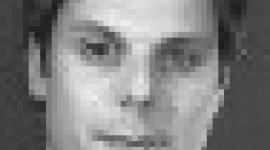Getting the Best Treatment For OCD (Obsessive Compulsive Disorder)

Dr. Gerald Tarlow joined us to discuss different treatments for OCD (Obsessive-Compulsive Disorder), such as behavior therapy, exposure and response prevention, and OCD medications (like SSRI's). He discussed how facing your fears through therapy can abolish your compulsions and significantly reduce your obsessive thoughts, thus alleviating your feelings of shame and guilt.
David Roberts is the HealthyPlace.com moderator.
The people in blue are audience members.
David: Good Evening. I'm David Roberts. I'm the moderator for tonight's conference. I want to welcome everyone to HealthyPlace.com. I'm glad you had the opportunity to join us and I hope your day went well. Our topic tonight is "Getting The Best Treatment For OCD, Obsessive-Compulsive Disorder." Our guest is Gerald Tarlow, Ph.D., of the UCLA OCD Day-Treatment Program. He is also director of Center for Anxiety Management. We'll be discussing therapy, meds, and hospitalization to treat OCD. Dr. Tarlow will also be taking your personal questions.
Good evening, Dr. Tarlow, and welcome to HealthyPlace.com. Thank you for joining us tonight. What would you say defines the "best treatment for OCD?"
Dr. Tarlow: The best treatment for OCD could be behavior therapy, OCD medications, or a combination of the two.
David: Some people may live in or near Los Angeles and may have access to a great treatment program, like the one at the UCLA Medical Center. However, many people don't. How does one find excellent treatment for Obsessive-Compulsive Disorder in their community?
Dr. Tarlow: It is difficult to find good, experienced behavior therapists. I would suggest that people contact the OC Foundation in CT.
David: When you use the term "good, experienced behavior therapists," what do you mean by that? What should people be looking for when selecting a behavior therapist?
Dr. Tarlow: It is important that the therapist have experience treating OCD patients using the techniques of exposure and response prevention.
David: Don't all therapists have that type of training?
Dr. Tarlow: No. In fact, very few have been trained in these techniques.
David: I want to address some OCD treatment issues. Many people with Obsessive-Compulsive Disorder suffer from shame and guilt because of the symptoms associated with the disorder. That, alone, may prevent them from seeking the treatment they need. They experience tremendous amounts of guilt, not only for their unsavory thoughts but also for what it implies about their character. How do you remove the shame and guilt pervasive among OCD sufferers?
Dr. Tarlow: It is important for people with OCD to talk to other people who have had similar problems. The attention that OCD has received in the media (e.g. talk shows) has also been helpful in getting people into treatment.
David: I think some people with OCD have expectations of what will happen when they take OCD medications, like Prozac, Paxil, Zoloft, Luvox and combine that with therapy. From emails I receive, many are expecting to be cured. Is that reasonable?
Dr. Tarlow: I don't like to use the word "cure." The problem can be controlled and people can lead very productive lives.
David: So are you saying the obsessions and compulsions never really go away completely?
Dr. Tarlow: Since obsessive thoughts are experienced by about 90% of the population, I would say it is difficult for them to go away completely. However, the frequency and intensity of the thoughts can be greatly reduced and the compulsions can be eliminated.
David: I know that each person is different, but roughly how long does it take, using medications and therapy, to experience a significant improvement in your daily life if you have mild to moderate OCD? Then, extreme OCD?
Dr. Tarlow: For mild to moderate OCD you could expect treatment to last 3-6 months. For more severe OCD it may take several years to really get the problem under control. However, with the intensive treatment programs, similar to the one at UCLA, we can reduce the symptoms significantly in a short period of time (3-6 weeks).
David: Is there any reason you can think of for someone to be afraid of therapy for OCD? Will it initially be a scary process?
Dr. Tarlow: Behavior therapy involves facing the fears. This may produce a great deal of anxiety for many patients. However, we can make the process easier by starting with mild fears and working up to more difficult ones.
David: One other question before we start with the audience questions. When is it time to consider hospitalization for OCD, whether it be inpatient or outpatient? And what is the difference in the treatment program between the two types of hospitalizations?
Dr. Tarlow: Very few people need to be hospitalized for OCD. Most of the intensive treatment programs are usually 2-6 hours per day. It is important that patients learn to confront the fears in their home environment, not just in the hospital.
David: Here is the first audience question:
nutrine: Hello to the moderator and Dr. Tarlow. I'm an OCD patient from India!!! How severe can the obsessive thoughts be and how likely are they to be cured?
Dr. Tarlow: Obsessive thoughts can be very severe. They can occupy one's entire day. They are treatable no matter how severe they are.
OCBuddy: I am wondering if Dr. Tarlow has any experience or thoughts about the use of 5-HTP, an amino acid, for treating the depression that often comes with OCD?
Dr. Tarlow: Sorry, no experience at all with that.
reishi9154: Hello to everybody here tonight. I'm an OCDer from Maine. My question is, where do intrusive violent thoughts come from and what is the likelihood that they will be acted out?
Dr. Tarlow: Intrusive, violent thoughts are actually very similar to all other OCD thoughts. The thoughts are, of course, produced in the brain and are often triggered by a specific scene or situation. If they are truly obsessive thoughts they will not be acted out.
slowsun: Why do you think that some people have thoughts of scrupulosity and others have other thoughts or fear of hurting someone. Is it mainly related to the person's experiences in life or something else?
Dr. Tarlow: I do believe that an individual's obsessions are related to their own life experiences. The obsessions could be related to what you see or what you read about.
missbliss53: What is the best medication for OCD?
Dr. Tarlow: I am a psychologist, so I don't prescribe medications. However, from my experience it appears that the SSRI medications are all about equally effective in treating OCD.
David: Missbliss, the general literature available suggests that SSRI's like Prozac, Zoloft, Luvox, and Paxil are helpful. But you should contact your doctor or a psychiatrist for more info on that.
Here's the next audience question:
ruffledfeatheredloon: Is it possible to get better without taking medicine?
Dr. Tarlow: Absolutely. Behavior therapy has been shown to be as, or more, effective in many research studies.
seb: Is there research going on right now so that we can hope for a complete cure some day?
Dr. Tarlow: I think the treatment is very effective right now. I would guess that there may be new medications that might come along that are even better.
kimo23: How can behavior therapy help someone who only has obsessions and no compulsions?
Dr. Tarlow: First of all, many people with obsessions often engage in mental rituals to alleviate the anxiety from the obsessions. Behavior therapy also involves utilizing a technique called imaginal exposure which is very helpful for obsessions.
David: What is imaginal exposure?
Dr. Tarlow: Imaginal exposure involves having the patient imagine their worst fears actually happening. The patient is then asked to continue imagining these fears until they no longer produce anxiety.
David: On the subject of "imaginal therapy," here's one audience comment:
Nerak: Oh My God, that sounds like it would be a very scary thing to do!!
Dr. Tarlow: Again, the behavior therapy is not fun. It is work and it does produce anxiety. I like to compare it to bad tasting medicine. You know it is good for you, but it does taste bad.
David: Earlier, we addressed the guilt and shame involved with OCD. Here's a question on how to deal with your family:
nutrine: It's difficult for me to express the severe obsessive thoughts to my family and my psychiatrist. How can I go about with the process?
Dr. Tarlow: It may be helpful to start with some of the thoughts that are less severe. If you can see that these thoughts are helped by the therapy, you may be more open to talking about the more severe thoughts.
holly43: My daughter says she has no fears of anything happening but just wants to do everything perfectly. How do you handle this?
Dr. Tarlow: Many people have done their compulsions for so long they are no longer connected to the original obsessive thoughts. For people like this we try to use exposure to doing things imperfectly without allowing the person to correct the situation.
David: For those in the audience, if you've been in therapy for OCD, maybe you could send me a brief comment on how that is going or how it worked out for you. I'll post the comments as we go along.
Does age make a difference in the level of responsiveness to behavioral therapy?
Dr. Tarlow: Generally not. However, some older patients have more difficulty with the treatment.
David: Why is that?
Dr. Tarlow: They have had the obsessions and compulsions for a long time and have learned to live their life around them. They avoid a lot of things. Also, they may not be able to identify the thoughts as obsessions.
David: Here's a response to a question from Holly earlier tonight.
reishi9154: In response to holly's question, I had something like that where there was nothing I was really afraid of but I had to plan the next day for hours before I went to bed, otherwise I wouldn't be able to go to sleep or I'd wake up panicked. I just wanted to 'make sure' it would be a good day.
David: And here are some audience comments on "therapy experiences" for OCD:
slowsun: I am combining therapy with medication (Luvox) and have made great strides from where I started. I still hope to improve even more though. Most of my obsessions are fears of having the obsessive thoughts.
reishi9154: Therapy is working decently for me. I find it helps to have someone who understands my problems and fears, and she generally has helpful things to say. Medicine also complements that very nicely.
David: Here's the link to the HealthyPlace.com OCD Community. You can click on this link and sign up for the mail list at the top of the page so you can keep up with events like this.
Here's the next audience question:
Gattica: Are there life events which trigger OCD or is it independent of this and biochemical and would arise anyhow?
Dr. Tarlow: People often experience OCD in response to stress. It may be that many people are predisposed genetically toward OCD and it comes out initially during a stressful life event.
galia: What is the % of people who got well from the day program? How much does it cost and can program graduates be contacted for details?
Dr. Tarlow: 96% of the patients in our program reduce their OCD symptoms by at least 25% in the first six weeks and 50% of our patients reduce their symptoms by at least 50% during the first six weeks. The program costs approximately $320 per day. It would be possible to contact some ex-patients to get their feedback.
David: Are there similar programs that you know of in other parts of the U.S.? If so, where?
Dr. Tarlow: Rogers Memorial Hospital in Wisconsin has a day treatment program and a residential program. Mass General in Boston also has both programs. The Mayo clinic just started a day treatment program for OCD.
LeslieJ: Those of us with Bipolar Disorder, like myself, experience problems with obsessive thinking/ruminating only when we are in one particular cycle--such as hypomania or mania. Have you any experience with treating this with behavior therapy? Also, is it possible to take medications for OCD, such as Prozac, only during that cycle and have it be effective?
Dr. Tarlow: If you are currently experiencing the symptoms it would be possible to use behavior therapy. Again, I am not a psychiatrist. However, I have not heard of people taking the medications only during a particular cycle.
deeeni: Dr. Tarlow, I've been repeating the same sentence in my head for a month. It has to do with me dying. I suffer from bipolar disorder and the voice started when I was going through a rapid and mixed cycle. I still have the same sentence at the same time everyday. Is this some complication of bipolar or OCD?
Dr. Tarlow: It could be an OCD symptom triggered by the time of day.
David: Regarding an earlier question on whether OCD is caused by situational events or is biochemical in nature, here's an audience comment:
reishi9154: In response to Gattica's question, I feel that in many ways OCD is a control thing and that my personal OCD could have arisen in response to situations when I was younger where I felt very ill-at-ease with myself and surroundings. I think my OCD compulsions were a result of that and were meant to take control of my surroundings and better my life, but they backfired. I think that you can be predisposed to the disorder genetically but there is something environmentally that has to happen to really kick it
David: Besides depression, do you see many patients with OCD and other psychological disorders? I'm wondering how common that is?
Dr. Tarlow: It is common to have other problems along with the OCD. Many patients have another anxiety disorder, such as generalized anxiety. Other patients have eating disorders, impulse control disorders, substance abuse problems and even psychotic problems.
David: I would imagine that makes treatment all the more difficult and complicated. Is that true?
Dr. Tarlow: Yes, it is important to determine which problem should be treated first.
ruffledfeatheredloon: Someone said OCD is caused by tightness in the brain and that you should learn to relax your brain. They said especially the part between your eyes. How can you do that? I don't understand.
Dr. Tarlow: I wish it was that simple. I don't think there is any research evidence that shows that technique will help people with OCD.
David: Earlier, someone sent in a question about which books might be helpful in understanding OCD and also deals with self-help issues. Are there any books that you would recommend, Dr. Tarlow?
Dr. Tarlow: Getting Control, by Lee Baer, is an excellent self-help book. There are others by Edna Foa and Gail Steketee that are also very good.
firespark3: Do you have any tips for people with trichotillomania?
Dr. Tarlow: Trichotillomania can best be treated with a technique called habit reversal. It is different from OCD treatment. It involves learning to break the conditioned, or learned habit.
David: And how is that accomplished?
Dr. Tarlow: It involves a series of techniques including relaxation training, self-monitoring, learning to use a competing response and several more.
David: There is one last thing I'd like to touch on. What help is available for family members of OCD sufferers?
Dr. Tarlow: There is an excellent book by Herb Gravitz that should be read by family members. There are also family support groups available. Finally, I would encourage family members to go to the therapy sessions with the patient, learn what the therapy involves and how to help out.
David: What can family members do to help the OCD patient?
Dr. Tarlow: They need to know what the patient's assignments are. They should not do compulsions for the patient. They should not get angry at the patient.
David: I know the last thing might be pretty difficult -- not getting angry at the patient. I'm sure that's where therapy for family members would be a help.
Dr. Tarlow: Yes.
David: Thank you, Dr. Tarlow, for being our guest tonight and for sharing this information with us. And to those in the audience, thank you for coming and participating. I hope you found it helpful.
Also, if you found our site beneficial, I hope you'll pass our URL around to your friends, mail list buddies, and others. http://www.healthyplace.com
Dr. Tarlow: It was my pleasure. Thank you for having me.
David: Good night, everyone.
Disclaimer: We are not recommending or endorsing any of the suggestions of our guest. In fact, we strongly encourage you to talk over any therapies, remedies or suggestions with your doctor BEFORE you implement them or make any changes in your treatment.
APA Reference
Gluck, S.
(2007, February 23). Getting the Best Treatment For OCD (Obsessive Compulsive Disorder), HealthyPlace. Retrieved
on 2026, March 3 from https://www.healthyplace.com/anxiety-panic/transcripts/getting-the-best-treatment-for-ocd-obsessive-compulsive-disorder


